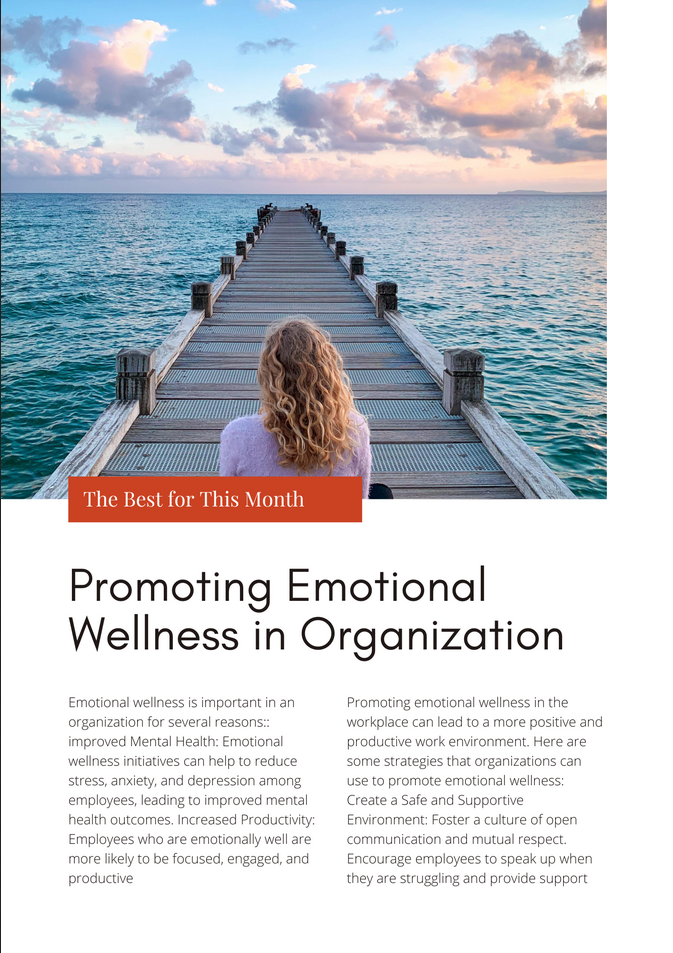Promoting Emotional Wellness in Organization - What Executive Should Know
Emotional wellness refers to the ability to understand, express, and manage your emotions effectively. It involves cultivating positive emotions, coping with stress, and maintaining healthy relationships with others.
Emotional wellness is important in an organization for several reasons:
- Improved Mental Health: Emotional wellness initiatives can help to reduce stress, anxiety, and depression among employees, leading to improved mental health outcomes.
- Increased Productivity: Employees who are emotionally well are more likely to be focused, engaged, and productive at work, leading to improved job performance and outcomes.
- Enhanced Employee Retention: Organizations that prioritize emotional wellness are more likely to have high employee retention rates, as employees are more likely to feel valued and supported in the workplace.
- Positive Workplace Culture: Emotional wellness initiatives can contribute to positive workplace culture by fostering a sense of community, empathy, and support among employees.
- Improved Interpersonal Relationships: Employees who are emotionally well are better equipped to manage conflict and build positive relationships with their colleagues, leading to improved team dynamics and outcomes.
- Reduced Absenteeism: Emotional wellness initiatives can also help to reduce absenteeism and turnover rates, as employees are more likely to feel supported and motivated to come to work.
Promoting emotional wellness in the workplace can lead to a more positive and productive work environment. Here are some strategies that organizations can use to promote emotional wellness:
- Create a Safe and Supportive Environment: Foster a culture of open communication and mutual respect. Encourage employees to speak up when they are struggling and provide support and resources to help them manage stress or other emotional challenges.
- Offer Employee Assistance Programs: Offer employee assistance programs (EAPs) that provide counselling, support, and resources for employees dealing with emotional challenges. Make sure employees are aware of these resources and encourage them to use them when needed.
- Provide Flexibility: Offer flexible work arrangements, such as telecommuting or flexible schedules, to help employees manage work-life balance and reduce stress.
- Encourage Work-Life Balance: Encourage employees to take breaks and prioritize their well-being outside of work. Offer wellness programs or resources that promote work-life balance, such as fitness classes, meditation sessions, or parenting support groups.
- Recognize Achievements and Contributions: Recognize and reward employees for their achievements and contributions to the organization. Celebrate successes and offer public recognition for employees who go above and beyond in their work.
- Provide Training and Support: Provide training and support for managers and supervisors to help them identify and address emotional challenges in the workplace. Encourage managers to promote emotional wellness and provide support and resources for their employees
Promoting Physical Wellness in Organization - What Executive Should Know >>> More
Promoting Intellectual Wellness in Organization - What Executive Should Know >>> More
Promoting Occupational Wellness in Organization - What Executive Should Know >>> More
Promoting Spiritual Wellness in Organization - What Executive Should Know >>> More
Promoting Social Wellness in Organization - What Executive Should Know >>> More









